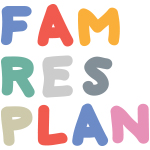Edukacijsko-rehabilitacijski
fakultet Sveučilišta u Zagrebu
[ Specifična obilježja
obitelji u riziku: doprinos planiranju
kompleksnih intervencija ]
Ninth EUSPR Conference and Members’ Meeting EUSPR Conference and Members’ Meeting „Prevention Technologies – improving the use of evidence in prevention practice“, October 24th – 26th 2018, Lisbon, Portugal
Sunday, 28. October, 2018.
Project results are presented at Ninth EUSPR Conference and Members’ Meeting EUSPR Conference and Members’ Meeting „Prevention Technologies – improving the use of evidence in prevention practice“, October 24th – 26th 2018, Lisbon, Portugal. For conference program please follow the link.
Poster presenatation From complex needs to complex intervention – example of FamResPlan research project (Valentina Kranželić, Helena Križan, Martina Ferić, Zoran Zoričić, Daniela Vojnović, Sanja Jelić and Antonija Žižak) is available here.
Abstract of the poster:
Te overall objective of the research project Specifc characteristics of families at risk: contribution to complex interventions planning (FamResPlan) is to identify characteristics of specifc groups of families at risk – their risk factors, readiness for change and intervention, and the life satisfaction of family members. As a set of new, understudied processes placed in the context of the family resilience concept, project fndings could be of importance for complex interventions planning. Te comprehensive FamResPlan study of families at risk is being conducted at the moment and the sample will consist of 200 families with various complex needs for intervention and support that have at least one member with serious behavioural problems. Te aim of this presentation that has been fully supported by Croatian Science Foundation under the project IP-2014-09-9515, is to discuss the fndings regarding the complex needs of families with at least one adult member diagnosed with an addiction disorder. In the presented study, complex needs are assessed by self-report from addiction clinic patients as well as by self-report from one of their family members. In addition, complex needs for intervention are assessed by a mental health professional from the addiction clinic. It is expected that the previously mentioned complex constructs will provide a deeper insight into the complex processes regarding intervention needs of families at risk. Tese insights can be used as a good foundation for developing complex interventions for this specifc target group – families with one member diagnosed with an addiction disorder. As well, the results from this study should provide basic information for the development of research informed preventive interventions related to the concept of family resilience. Te research data are still being collected at the time of writing this abstract, which is why the results will be presented at the conference.
For poster presenatation Testing the family resilience model: a research proposal (Helena Križan) click here.
Poster abstract:
Introduction: Te concept of family resilience has been established as the result of a new way of looking at family crises where they are seen as opportunities for families to grow and adapt. Family resilience is often seen as a process where a family that is faced with signifcant hardship manages to achieve good family outcomes due to certain protective factors/mechanisms. One of the most widely used models of family resilience was created by Froma Walsh. Even though many preventive interventions around the world are already based on promoting family resilience, the theoretical basis of the model needs further empirical testing. Aims: Te aim of this study is to test the suggested theoretical model of family resilience by looking into the components of family resilience (family resilience factors, risks and positive outcome) in the families of Zagreb high school students and the relations between those components. Research problems also cover determining the diferences in the perception of the components of family resilience (family resilience factors, risks and positive outcome) between the parents and their children. Tis research also aims to contribute to the development of the methodology of testing family resources. Methods: A quantitative research model will be used with a convenience sample of 300 families of Zagreb high school students. Te family will be represented by a high school student and another adult family member (parent or other guardian). Teir perspective will be combined into a unique family perspective using structural equation modeling. Family risk will be operationalized as the sum of disruptive life changes that afect the family. Te family resilience factors examined in this research will be based on the theory of the family resilience system by Froma Walsh. Positive family outcomes will be operationalized as family life satisfaction and satisfaction with family adaptation. Te research design presented here will be used for a doctoral thesis at the University of Zagreb and is presented here to discuss methodology, difculties and opportunities. Te research is part of the project Specifc characteristics of families at risk: contribution to complex intervention planning that is supported by the Croatian Science Foundation.

